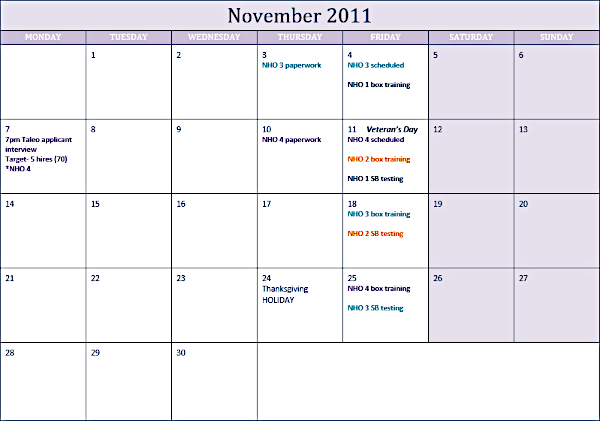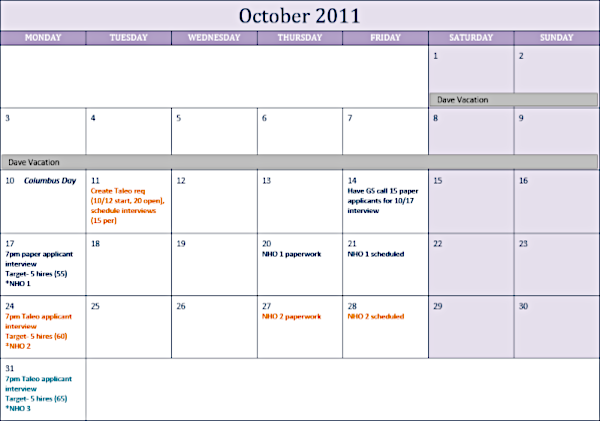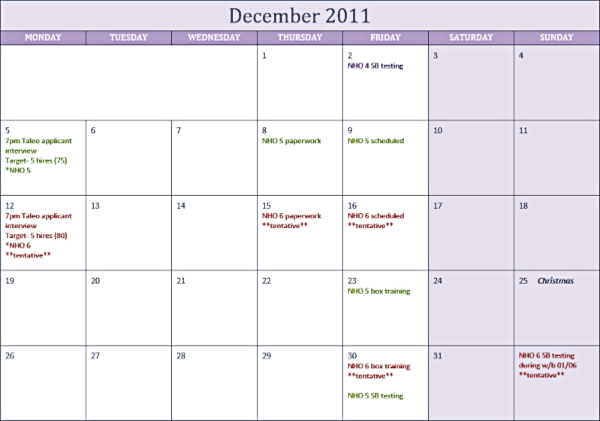Pacific Theatres HR: Walk like A, Talk like B.
HR at Pacific was a completely different beast than with AMC. AMC had sought control of every aspect of scheduling and development, with authority that was very carefully and specifically delegated. Pacific on the other hand came from a place of empowerment. At least, that was their goal. The reality was a little different.
We had staff, supervisors, and coordinators on the schedule. At one point the directive came down to prepare to dissolve the coordinator role, and our management teams had to start thinking about how that was going to work. At Glendale the decision was made for us when all but two of our coordinators were fired for doing something done. Restaffing the coordinator role made no sense, so we jumped into resetting the supervisors to new habits. That work was not embraced so fully at other locations.
At Glendale I was HR/Booth, and booth was a good example for anything that needed to be done right. Booth was ALL ABOUT key, mission-critical work in the hands of the hourly schmoes who just kinda liked what they did. So I did the same thing with HR and put my staff team in charge of scheduling. Managers would come up with the attendance forecasts, I would provide the team with that week’s payroll target and any particular objectives I wanted to see happen that week, and they would spend 4-5 hours on Tuesdays drafting the staff schedule. I would add in the supervisor schedule and guide them through a second draft. By the time I left Pacific, one of my HR team from Glendale was a manager at Northridge.
During the fall of 2011 we were preparing to staff up for the holidays. As a rule that meant adding 30-50% more staff and training them to sell and sweep popcorn. But we had already gone through this whole exercise with the supervisors demonstrating that more was possible. So I tested that theory with a calendar that mapped out the interviews, paperwork, orientation, and training in concession, usher, AND box office, of roughly 40 new hires over 8 weeks. And my team pulled it off. They figured out a new way (for them) to train for box to make the goal affordable, and they figured out the dozen moving parts every week that my plan required. And we made it happen. Easiest holiday hiring crush by far in 20 years on the job.



And I had thought that elevation of the supervisors into more responsibilities would have been the norm across the circuit (how else would it have worked??), until I was next assigned to the Winnetka location and saw how tied everyone still was to the idea of managers doing everything. During the summer of 2012, that simply had to change. One of our managers left and wasn’t replaced, another went on leave, and our GM was going through a months-long development program at one of the ArcLights. So during the summer of the first ‘Avengers’, it was essentially me any one other guy on the management roster. Loaners from other sites were scheduled to fill the gaps. Anyway, with no managers on the schedule, it was literally impossible for managers to do everything. ESPECIALLY since the other manager on the schedule really wasn’t very good to begin with.
So one day I scheduled a supervisor meeting, we divided up the work areas, and for the rest of that summer the staff leaders did the heavy lifting. I built the HR schedulers at Winnetka to operate with bits of oversight like the Glendale team had. I organized show scheduling the same way; by the time I was done with the weekly booking call, my guys had most of a first weekend draft already complete.
It was always an uphill swim however, regardless of Pacific’s ostensibly holistic approach to leadership. For all that Pacific’s GMs would parrot the company line about the staff being their most valuable untapped resource, and how staff were capable of running most of the operations just fine on their own, I still remember the leadership conference in ’14 where, during a training guide review, every single one of the Pacific GMs voted to keep not trusting those same staff to carry their cellphones on the floor.
(Those same disconnects between theory and practice existed at the management level too, but that’s several different stories.)
As with AMC, there was some tool-building along the way, this time building upon the theatre tools I’d built for AMC. I merged an edition of my staff scheduling tool with another manager’s show scheduling tool with another manager’s daily reporting tool to create a one-stop forecasting/scheduling/reporting spreadsheet. That one will get a whole post all to itself.